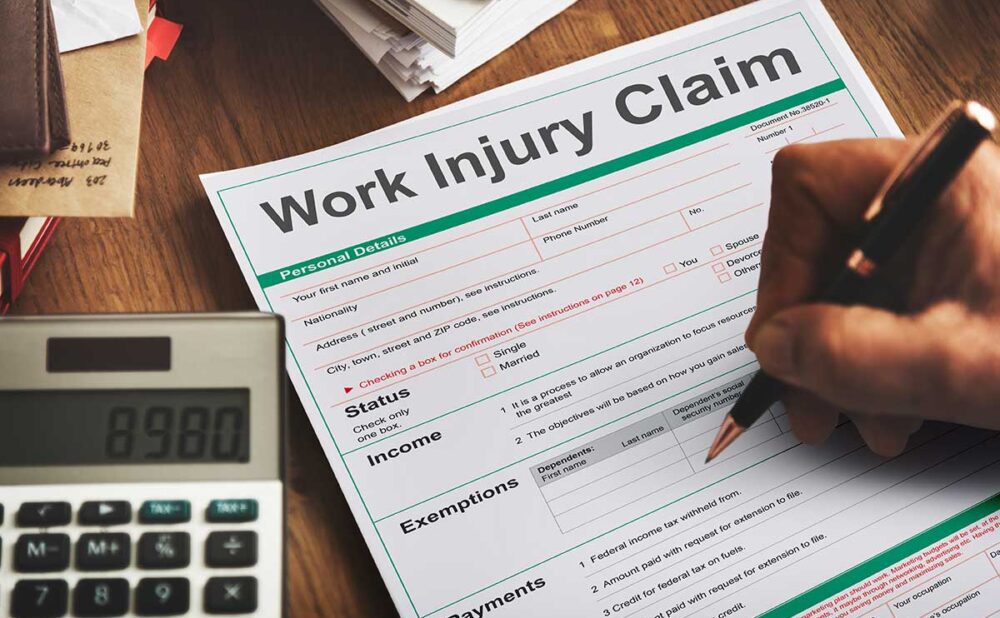What Do I Do if I am Injured at Work?
If you get injured at work, you’re probably entitled to receive compensation for your injures through workers’ compensation, regardless of who caused your injury. Although every state’s laws are different, nearly all employers are required to have workers compensation coverage for their employees, especially if they have multiple employees.
Report the Injury
It is important that you immediately report any injury to your employer. Workers’ compensation claims are filed by your employer with their insurance company. However, your employer cannot file a claim unless you inform them about your injury. If you fail to report your injury to your employer right away, your employer or their insurance company may deny your claim. In many states, there is a short time period in which the injury must be reported to be covered under workers’ compensation. Therefore, if you get injured while performing a job-related task while on the job, you should immediately report the accident to your supervisor. It is best to put the notice of injury in writing. This also helps your employer adopt new safety protocols to prevent any future injury.
Workers Compensation
Laws in almost every state require employers to carry workers’ compensation insurance. Under workers’ compensation law, the employer cannot be sued for injuries related to work. This is generally referred to as the “exclusive remedy” doctrine or principle. See O.C.G.A. § 34-9-11. When workers’ compensation coverage is available, the employee is not required to prove that the negligence of the employer led to their injury. In fact, employees are provided compensation even if the injury occurred because of their own negligence or because of another’s criminal act.
However, this does not mean that employee injuries will always be covered. In some instances, workers’ compensation won’t cover the injury of an employee. For example, if a certain employee gets injured while they are intoxicated, under the influence of drugs, or fail to use a safety device, such as a seatbelt, their injuries may not be covered.
Also, workers compensation claims are not brought in state courts; rather, they are brought before Georgia’s State Board of Workers’ Compensation.
Get Medical Treatment
After the injury, you should see a doctor or medical provider to get necessary medical treatment. If your injuries are serious, immediately go the ER. Otherwise, ask your employer about the doctor you should see. If they require you to see a specific doctor, go to them. If you are free to choose, then go to your physician for treatment. Most states require employers to post a list of approved physicians to see if you have been injured while at work.
If the doctor was suggested by your employer and you are not satisfied with their treatment, you should speak to your employer about the possibility of visiting another physician. It may be helpful to consult with a qualified worker’s compensation attorney. However, if you go to an outside or unapproved physician, you may have to pay for that treatment on your own. Of course, if you carry health insurance, then your health insurance may cover the cost of medical care from doctors not listed by your employer.
Understand Your Rights
Under workers compensation law, you have many legal rights. Understanding these rights is essential for when you get injured while at work. Although each state is different, the rights you generally have include:
- The right of filing a workers’ compensation claim for the injury you suffered because of a job-related injury;
- The right of seeing a physician and pursuing medical treatment;
- If the physician releases you and declares you fit to work, you can return to your work;
- If you are not able to work due to your illness or injury related to the job – whether temporarily or permanently – you’re entitled to some kind of disability coverage; and
- The right of being represented by your attorney through the whole process.
You should also know that you have the right of refusing certain offers or requests. For example, when you get injured and your employer says that you must pay for medical treatment through your health insurance, you can say ‘no’ and tell them that they must pay for your treatment. If your employer offers you some sort of incentive so that you do not file a workers’ compensation claim, you can refuse this incentive and demand appropriate treatment.
When you get injured at work and want to receive compensation for your medical bills, you should consider hiring an experienced attorney. Although employers will generally file a claim with their insurer on your behalf to help you get compensated, sometimes employers fail to do so or fail to adequately assist their injured employees. Then, you would have to pursue the claim yourself. If you have any questions, an experienced attorney can help you submit a claim and get the compensation you are entitled to. Feel free to contact personal injury attorneys at The Jewkes Firm should you have any questions.




